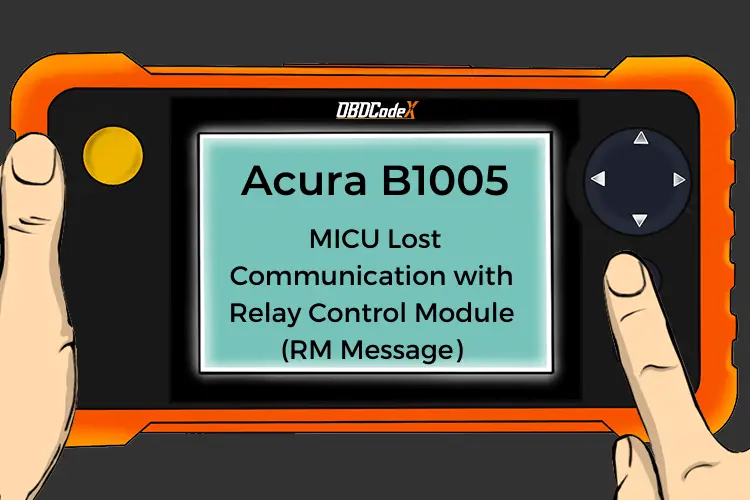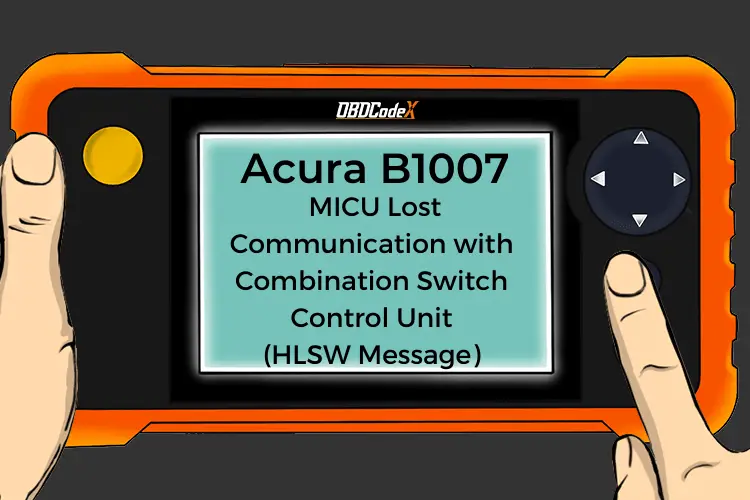U0224: Lost Communication With Door Window Motor C
Is your scanner showing U0224?
No worries. We'll show you what it means and how to deal with it.
U0224: Lost Communication With Door Window Motor C
OVERVIEWWhat Does The U0224 Code Mean?
This code means that the Door Window Motor C (DWM-C) and other control modules on the vehicle are not communicating with each other. The circuit most often used to communicate with is known as Controller Area Network bus communications, or simply put, CAN bus.
The modules communicate with each other over a network, much like the network you have at home or at work. There are several network systems used by the vehicle manufacturers. Prior to 2004, the more common (not all inclusive) module-to-module communication systems were Serial Communications Interface or SCI; SAE J1850 or PCI bus; and Chrysler Collision Detection, or CCD.
The most common system used after 2004 is known as Controller Area Network bus communications, or simply put, CAN bus (was also used before 2004 on a small segment of vehicles). Without this CAN bus, control modules cannot exchange information, and your scan tool may or may not be able to get information from the vehicle, depending on which circuit is affected.
The Door Window Motor C (DWM-C) is typically located inside the door in question. It receives inputs from a variety of sensors, some hardwired directly to it, while most are sent over the bus communications system from the Powertrain Control Module (PCM). These inputs allow the module to control the movement of the driver’s/passenger’s windows. Refer to a vehicle specific reference to determine which door is “C” in your particular case.
Troubleshooting steps may vary depending upon manufacturer, type of communications system, number of wires and wire colors in the communication system.
What Are The Symptoms Of The U0224 Code?
Symptoms of a U0224 code may include:
- Driver’s/passenger’s windows stuck in one position / won’t move
- Heater for driver’s/passenger’s mirrors inoperative
- DWM-C won’t power up/inoperative
What Are The Potential Causes Of The U0224 Code?
Typically the causes for this code to set are:
- Open in the CAN bus + or – circuit
- Short to power or ground in either CAN bus circuit
- No power or ground to DWM-C module
- Rarely – faulty control module
How Serious Is This U0224 Code?
Severity in this case is never severe, as this is a customer convenience device, and there is always a manual workaround in the event of a complete electric failure. Vehicle operation is in no way affected by the lack of operation of the DWM-C.
How Can You Fix The U0224 Code?
Step 1
A good place to start for ALL electrical diagnosis is to check for technical service bulletins (TSB) for your vehicle. The problem you are having may be known to others in the field. A known fix may have been put out by the manufacturer and can save you time and money during diagnosis.
It is assumed at this point that a code reader is available to you, as you have been able to access codes so far. See if there were any other diagnostic fault codes that are bus communication related or battery / ignition related. If so, you should diagnose them first, as misdiagnosis has been known to occur if you diagnose the U0224 code before any of the basic codes have been thoroughly diagnosed and repaired.
If the only code you get from other modules is the U0224, try to access to the DWM-C. If you can access codes from the DWM-C, then the U0224 code is either intermittent or a memory code. If unable to access the DWM-C, then the U0224 code that the other modules are setting is active, and the problem is there now.
Step 2
The most common failure is a circuit fault which causes the loss of power or ground to the door window motor c.
Check all fuses that power up the DWM-C module on this vehicle. Check all grounds for the DWM-C. Locate where the ground attaching points are on the vehicle and make sure that these connections are clean and tight. If you must, take them off, get a small wire bristle brush and baking soda/water solution and clean each one, both the connector and where it connects.
If any repairs were made, clear the diagnostic trouble codes from all the modules that set the code in memory, and see if you can now communicate with the DWM-C module. If communication is re-established with the DWM-C, then the fuses/connections were most likely your problem.
Step 3
If the code returns or communication still cannot be established with the module, locate the CAN bus communication connections on your vehicle, most importantly the DWM-C connector, which is usually located inside the door in question. Disconnect the negative battery cable before unplugging the connector at the DWM-C. Once located, visually inspect the connectors and wiring. Look for scraping, rubbing, bare wires, burn spots or melted plastic.
Pull the connectors apart and carefully inspect the terminals (the metal parts) inside the connectors. See if they look burned or have a green tint indicating corrosion. Use electrical contact cleaner and a plastic bristle brush if cleaning of the terminals is needed. Let dry and apply electrical grease where the terminals contact.
Before connecting the connectors back to the DWM-C, make these few voltage checks. You will need to have access to a digital volt-ohmmeter (DVOM). Verify that you have power and ground at the DWM-C. Gain access to a wiring diagram and determine where the main powers and grounds come into the DWM-C. Reconnect the battery before continuing, with the DWM-C still disconnected.
Connect the red lead of your voltmeter to each B+ (battery voltage) supply coming into the DWM-C connector and the black lead of your voltmeter to a good ground (if not sure, battery negative always works). You should see a reading of battery voltage. Verify that you have good grounds as well. Hook the red lead of your voltmeter to battery positive (B+) and the black lead to each ground circuit. Once again you should see battery voltage at each connection. If not, repair the power or ground circuit problem.
Step 4
Next, check the two communication circuits. Locate the CAN C+ (or HSCAN + circuit) and CAN C- (or HSCAN – circuit). With the black lead of your voltmeter connected to a good ground, connect the red lead to CAN C+. With the Key On, Engine Off, you should see about 2.6 volts and fluctuating slightly. Next, connect the red voltmeter lead to the CAN C- circuit. You should see approximately 2.4 volts and fluctuating slightly. Other manufacturers show CAN C- at approximately .5 volts and fluctuating Key On Engine Off. Check the specifications for your manufacturer.
If all tests have passed and communication is still not possible, or you were unable to clear the U0224 fault code, the only thing left that can be done is to seek assistance from a trained automotive diagnostician, as this would indicate a failed DWM-C. Most of these DWM-C must be programmed, or calibrated to the vehicle to be installed correctly.
Recommended Parts
Below are some recommended auto parts to help you address the trouble code affecting your vehicle and get it running smoothly again:
Note: During the purchasing process, please check carefully whether the part you want to buy fits your car!
Reference Sources
U0224 Lost Communication With Door Window Motor C, OBD-Codes.








